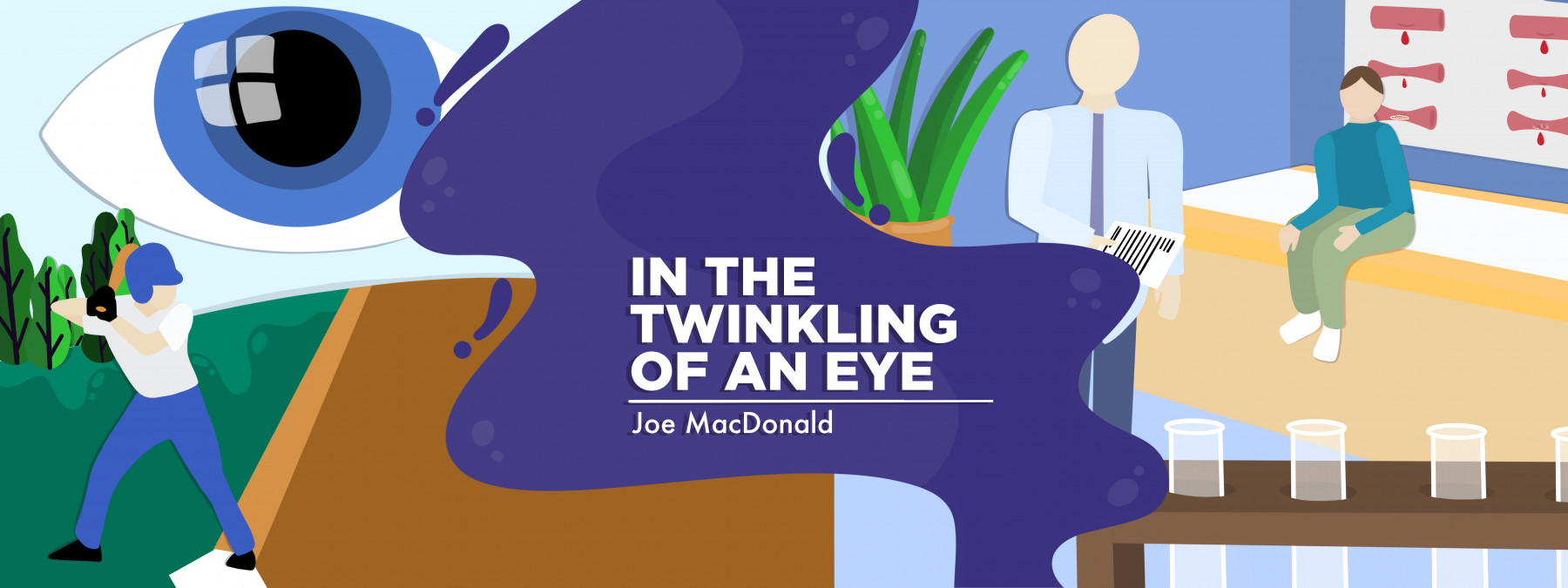When my son has a pain episode, my presence is good medicine
I'm learning that it's important to avoid rushing a solution

I entered the bedroom of my youngest son, Caeleb, one recent morning to offer him my usual cheerful greeting. That’s when I found him lying in bed in excruciating pain.
Caeleb has hemophilia A, and years of damage from internal bleeding episodes have left him with little to no cartilage in his affected joints. He struggles with chronic pain and limited mobility.
“Dad, I don’t think I can make it to school today,” he said to me with tears in his eyes. “My knee and ankle hurt badly, and I can’t apply pressure to walk.”
For a second, I felt that old anxiety rise up inside of me. I wanted to tell him that he could use crutches or anything else he needed, that he had to push through it and get to class. In one quick flash, I saw his academic future go up in flames.
Luckily, my better angels prevailed. I listened to him as he talked about what was happening, and after a few minutes, we devised a plan to help ease his pain. I went to the kitchen to prepare breakfast, grabbed his morning medicine and two Tylenol, and returned to his bedroom. We agreed to monitor how he felt over the next hour.
Learning to take my time
I’ve learned over many years that to best help my son when he’s in the midst of a pain episode, I had to acknowledge something in the deep recesses of my heart: My son has a bleeding disorder, and I do not.
This fact might sound so obvious, but I’ve had to admit that Caeleb’s body doesn’t operate like mine. I panic when I cut myself shaving and a clot doesn’t form quickly. I can’t fathom the horrific joint damage brought on by blood racing into places in his body that it shouldn’t go. I feel for Caeleb, but I don’t have everyday experiences to help me relate to his struggles.
It’s taken time for me to learn this lesson. I’ve had to reevaluate how I approached these episodes and my help. My instinct used to be to find something to help treat and work through his recurring spasms and cramps, pain that feels like someone has grabbed his right knee and ankle and squeezed them with all their might. These aren’t your average moments when you take two Tylenol and bam, you’re good as new.
It took me time to learn that trying to motivate my son to rise above his pain and get moving wasn’t helpful. I don’t know what his pain feels like, only how it’s been described — thousands of needles piercing his skin. This sensation can sometimes last many days before medication brings some relief.
The best way I’ve learned to help Caeleb is to listen to his feelings without trying to fix the situation. My usual first response in dealing with any problem is to find a solution as quickly as possible. In Caeleb’s case, a knee-jerk reaction isn’t what the situation requires. I’ve learned that I must first meet him in the moment.
One of the things I do now is sit with him and monitor his breathing. It’s often shallow and quick when he’s in horrible pain, as he was this day. I try not to get anxious myself and have learned to take deep, calming breaths. On this day, Caeleb’s own anxiety eventually lowered, and we we were able to begin the work of managing his feelings. This approach takes more time, but it’s so worth it.
To help Caeleb, I had to learn that getting from point A to point C meant going through point B. In the past, I tended to rush through those steps to reach the intended result. But as I continue to learn and grow with my son, I’ve come to see that the best way to help him is to stop, listen, and remember that the greatest gift I can give him is my presence.
Note: Hemophilia News Today is strictly a news and information website about the disease. It does not provide medical advice, diagnosis, or treatment. This content is not intended to be a substitute for professional medical advice, diagnosis, or treatment. Always seek the advice of your physician or another qualified health provider with any questions you may have regarding a medical condition. Never disregard professional medical advice or delay in seeking it because of something you have read on this website. The opinions expressed in this column are not those of Hemophilia News Today or its parent company, Bionews, and are intended to spark discussion about issues pertaining to hemophilia.








Leave a comment
Fill in the required fields to post. Your email address will not be published.